7 Spruce Street
Lead Aircraftman Irwin Williamson
Irwin Williamson, the eldest son of Harry and Ruth Williamson, grew up in the Paris Junction neighborhood, at 7 Spruce Street, along with three younger brothers. Irwin was born in 1937. Marie McHutchion, the girl he would come to marry, lived on Arnold Street, in Upper Town. In Paris in those days, young people had very little to do with young people in other areas of the town, at least not until they began to mingle at Paris High School. But Irwin and Marie met while skating at the Paris arena. Marie says that she “liked the way he skated” but had no idea where he lived other than a place called the Junction.
However, their romance did not go easily. Irwin enlisted with the Royal Canadian Air Force at 17 years of age in Hamilton. He accompanied a friend to Hamilton Recruiting Station when the friend went to enlist. Irwin tried the test too and passed but learned he was underage and was told to come back when he was 17 which he did and was accepted. He was sent to Camp Borden and thought he would be in the Motor Pool but found out he was actually going to learn about the aircraft. He qualified as an Air Frame Technician. He was sent to RCAF Station Trenton when he finished his course at Borden.
When Marie and Irwin were still dating, he would hitchhike home from Trenton and they would meet at the Ritz Grill on Dundas Street. They would then trek up to his home at the Junction. Marie and Irwin were married at St. James Anglican Church in November 1958 and lived in Trenton. After some months he was transferred to RCAF Downsview. They lived there from 1960-1962. Irwin was posted to RCAF Cold Lake in 1962, but due to lack of accommodation for dependents, Marie had to live in Edmonton, about 300 miles away from the base, for some months until she moved to the town of Grand Centre just outside the airbase.
Their next move came when Irwin was transferred to RCAF 4 Wing in Baden-Soellingen, West Germany in 1964. He would be working on the newly acquired CF 104 aircraft stationed there to meet Canada’s commitment to NATO’s air defence of Europe during the Cold War with the USSR. Irwin and Marie lived just off the base, in Hugelsheim, on the eastern bank of the Rhine River. Service here was at times a stressful responsibility. Marie recalls an occasion, shortly after they arrived in Germany, when the air raid sirens on the air base sounded shrilly across the town. No one knew what was happening when they saw fully armed soldiers in battle dress coming across the Rhine in amphibious vehicles and advancing fully armed through the town. It turned out to have been a simulated attack, but it accentuated the potential dangers to the military personnel and their families. Though there was no war declared, they were on the front line.
When we think of the courage and sacrifice of those in the military who fought in war, we need also to remember the courage and sacrifice that was needed to keep the peace. More than 125,000 Canadian Armed Forces members have served in international peacekeeping efforts in dozens of countries over the decades. Approximately 130 of them have lost their lives and many more have returned home with physical and psychological wounds. And we should not forget the sacrifices made by the families of those peacekeepers.
Canada played a key role in creating the concept of UN peacekeeping. In fact, we could say that Canada invented the concept of peacekeeping. Canadian Secretary of State for External Affairs and later Prime Minister Lester B. Pearson was awarded the Nobel Peace Prize for his leadership in helping establish the United Nations Emergency Force in Egypt during the Suez Crisis of 1956. It has served as a model for subsequent missions.
After four years in Germany, Irwin was transferred to Trenton in 1968 with their two daughters, who were born in Germany. They lived on the base in base housing where another daughter was born. Irwin was transferred to the Aerospace Engineering Test Establishment in Cold Lake. At AETE, RCAF members designed and tested improvements in aeronautics, from oil dilutions to aid starting in cold weather to improved and safer ejection seats. Irwin retired in 1979 after 25 years in the RCAF and returned to Paris.
He had been awarded the Canadian Forces Peackeeping Medal and bar.
Irwin and Marie returned to Paris, to Marie’s family home on Queen Street, where they raised their three daughters – Karen, Suzanne and Tracey. Irwin found a job at the Paris arena and retired at 65 years of age after working 20 years for the County. Irwin died in 2023 and is buried in St. James Anglican Cemetery.
